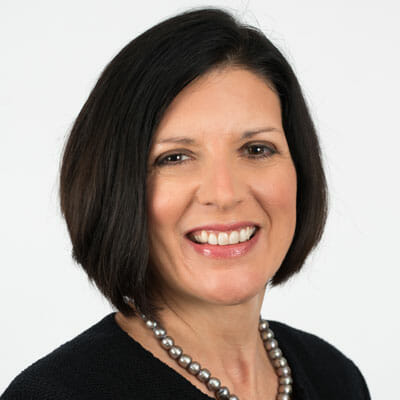
Brookdale Senior Living could reduce the number of communities in its portfolio by at least 20% over the next two or three years, President and CEO Lucinda “Cindy” Baier said Tuesday.
An exit from the home health business may be a possibility for the Brentwood, TN-based company as well, she suggested to those attending the Jefferies 2018 Global Healthcare Conference in New York City.
“In 2020 or 2021 … if I look at the composition of our portfolio, I see a portfolio that’s a higher concentration of owned assets, I see our leased portfolio being smaller than it is today, and if you look at the total number of communities, you probably would say we would have a reduction in communities of at least 20%,” Baier said. “That isn’t because there’s a magic number to operate. It’s because as we look at our portfolio today, there are communities where we think that we would like to walk away.”
Currently, the CEO said, Brookdale operates approximately 1,010 communities. “Our intention is to get the portfolio to where it is smaller, where we exit some of our underperforming portfolio optimization assets, as well as to sell some of our assets that are high-performing but have less potential,” she said. “That’s a pretty big element of our strategy.”
The approach of selling high-performing assets is a “pivot” for the country’s largest senior living operator, Baier said.
“If you have a community that is 90 or 95 percent occupied and you have an attractive rent and you have a very attractive cap rate, you may create more value for your shareholders by cashing out that asset and redeploying the capital where it can have a higher return,” she said.
The change in what Baier called “a transition year” — which so far has brought a new leader in February, a restructuring of the organization to increase decentralization, and “a major cost-cutting initiative” — comes as Brookdale focuses on attracting high-quality employees and increasing occupancy and shareholder value. The latter goal is the motivation behind possible portfolio changes over the next few years, she said.
“Once we get our existing portfolio at the optimum level from the existing communities and we get our occupancy back where it needs to be, then will grow again and we’ll expand the portfolio, but it will be smaller before it gets larger,” Baier said.
Proceeds from asset sales could be used to buy other properties, make lease-termination payments or fund capital expenditures, she said. “Given that our leased portfolio losing money is one of our single most important things that we’re trying to deal with, we want to keep that strategic flexibility until we understand what’s possible with our [real estate investment trust] partners,” Baier added.
Brookdale, she said, has “more work to do” regarding its portfolio of leased communities, working with REITs and joint venture partners “to make sure that we can manage the entire Brookdale portfolio similarly, whether it is owned, leased or managed.” Doing so, she predicted, will help Brookdale gain the 500 basis points of occupancy that it lost over the past several years.
“That is a cash opportunity of approximately $125 million of cash flow” based on the current size of the portfolio, Baier said. “So it’s a very meaningful improvement in the cash flow of the company, which we think will translate into shareholder value,” she added.
Room rate hikes could come for some residents in 2019 once supply and demand has normalized, Baier said, but they would be positioned as helping the company pay competitive wages to its workers.
“We have more opportunity to move rate in our in-place residents,” she said. “That’s where Mom moves in a community. She becomes established. She doesn’t want to move for another opportunity. …What we have historically found is, it’s very important to our residents to make sure that we pay our caregivers appropriately. So when we go to our residents and we explain that their rent increases are allowing us to fund employee investments, those normally go over much better.”
Selling home health?
When asked about potentially selling Brookdale’s home health business, Baier suggested that it was a possibility.
“The home health business is a very attractive business, and there’s a lot of interest in the business that we operate in today,” she said. “The most important thing is to make sure that those services are available for our residents, but what we have said is, if there is something that creates a lot of value for our shareholders, we’ll absolutely look at it. Now that could take many forms, but the most important thing is to recognize that the core of our business is serving seniors and to allow them to have the best life possible, and so making sure they get the services is really our primary focus.”
In the company’s first-quarter earnings call last month, Interim Chief Financial Officer Teresa Sparks said that the home health sector continued to challenge the company and that the ancillary service was performing below expectations.



